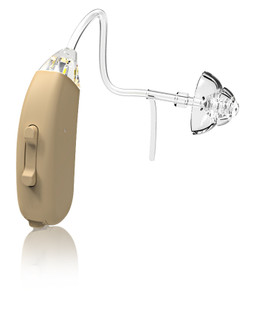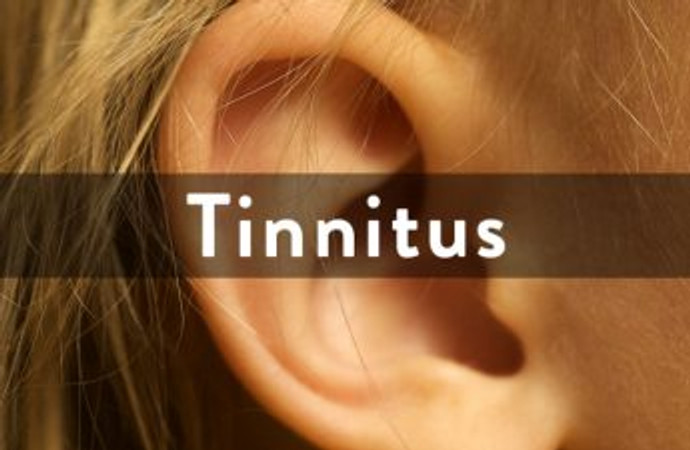Know Everything About Tinnitus
May 02, 2022
Tinnitus is perceived sound heard in either the head or ears. The word ‘Tinnitus’ originates from the Latin root word tinnire, which translates to ‘ring’. Usually, a victim experiences this sound in the truancy of external sounds and this perception is disconnected to any outside source. An estimated 10-15% of the global population i.e. 30-40 million people suffer from tinnitus or similar experiences across the world.
It is important to note that all age groups have reported experiencing symptoms similar to tinnitus. However, Tinnitus’incidence shoots up as we age and it is arguably more common among the elderly population. Despite this, Tinnitus in the below-12 age group has recently shot up to 13%.
There exist the following 3 types of Tinnitus:-
- Subjective Tinnitus: This is the most common kind of tinnitus; you may hear ringing, clicking or swishing in the absence of an acoustic stimulus i.e. only the patients are subjected to this hearing.
- Clicking or Pulsatile Tinnitus: The sounds produced can range from buzzing, ringing, clicking or rushing; they get synchronisedwiththe patient’s pulse or heartbeat.
- Objective Tinnitus: A rather rare type of tinnitus; objective tinnitus is induced from an actual noise generated in a vascular structure very close to the ear itself. Some of the most common causes for this include the likes of ageing, drugs, loud noise and Meniere disease.
Tinnitus is a precursor of some other disorder of the hearing system or the brain. Causes of Tinnitus are listed below:-
- Hearing loss: The most common cause for tinnitus; this is because of trauma to the ears as we age. This type is worsened by any condition that negatively impacts our hearing like ear infections or excess wax accumulation.
- Trauma: Trauma is also a common cause when it comes to Tinnitus, depending on the gravity and the nature of the incident.
- Exposure to loud noise: A very prevalent cause of tinnitus at present, it often damages hearing too. Unfortunately, most of us are ignorant of the harmful effects of extremely loud noise emanating from firearms, loud music etc.
- Medications: Common use drugs like Aspirin (if overused and self-prescribed), aminoglycoside antibiotics (an effective infection-fighting medication) and quinine. An upwards of 200 drugs have Tinnitus as a side effect.
- Meniere’s disease: Its symptoms include wooziness, Tinnitus and hearing loss that lasts for hours, then subsides. This disease is actually caused by a problem in the ear itself. It is important to note that Tinnitus here is simply a symptom.
- Acoustic Neuroma: A not so common cause of tinnitus, this includes a particular type of brain tumour- Acoustic Neuroma. Thesetumours develop on the nerve which supplies hearing and can cause tinnitus.
- Pulsatile tinnitus: This relates to blood flownear the ears through both the normal and abnormal blood vessels. Causes include pregnancy, anaemia, overactive thyroid, or tumours.
If you are repeatedly experiencing ringing in your ears, you should opt for a medical evaluation by an ear specialist. Treatment of Tinnitus will depend upon the cause. You can treat symptoms of Tinnitus with the following:
- Medications (Antidepressants, Antianxiety prescriptions)
- Eliminating emotional stress (Stress reduction techniques)
- Medical and psychological counselling
- Wearable sound generator
- Lifestyle change
- New sound hearing aids (Digital hearing aids are now available in markets which help in alleviating most of the uncomfortable experiences that accompany Tinnitus)
Researchers have successfully demonstrated the hereditary nature of certain kinds of Tinnitus. Bilateral Tinnitus – Tinnitus in both ears was observed to have had genetic link, especially in men.
Certain foods are known to relieve symptoms of Tinnitus while others make it worse.
Foods to Eat
- Potassium rich fruits: Pineapples, Bananas, Mangoes and Pears
The high potassium level in these fruits lowers blood pressure, allowing the human body to enhance blood circulation and supply that is needed to stay healthy, thus relieving you of Tinnitus.
- Garlic: It prevents Tinnitus and hearing loss, also alleviating symptoms surrounding Tinnitus. It increases blood circulation in the body and brings inflammation under control. This lets blood supply get everywhere it’s required without obstructions.
- Zinc: Seafood (oysters), beef, lamb (lean is preferable) and spinach (also having a high level of iron which can relieve Tinnitus)
Foods to avoid
- Salt: Salt, or sodium is the main cause for high blood pressure which can negatively affect blood flow and can activate Tinnitus.
- Alcohol and Smoking: Also associated with higher blood pressure and aggravation of Tinnitus.
Tinnitus is far too common in today’s world; which is why most of the top medical brands have rolled out inexpensive hearing aids, much to the convenience of the general folk.
While Tinnitus is not a major disorder, it can disrupt your wellbeing. Stay informed, healthy and Tinnitus free!










